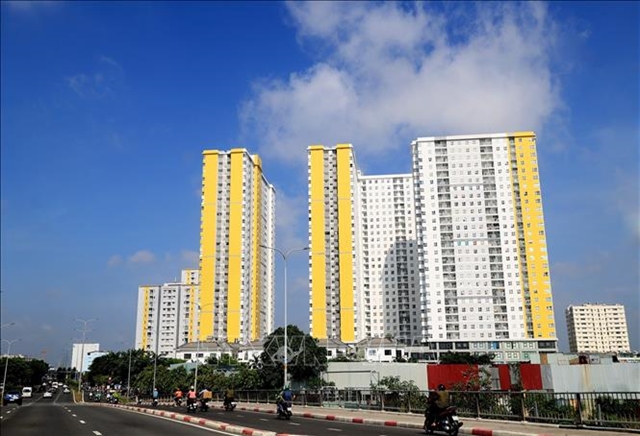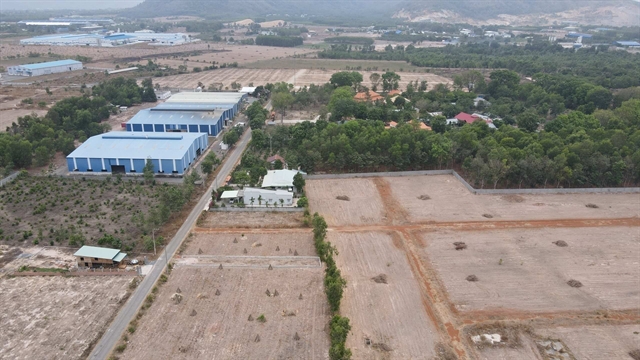 Business Beat
Business Beat

 |
| Land lots in Bà Rịa-Vũng Tàu Province. Under the new Land Law 2024, the land price list will be published on an annual basis, with the first list applied from January 2026. —VNA/VNS Photo |
HÀ NỘI — The domestic real estate market will have four land valuation methods instead of the current five methods, according to a new decree issued by the Government on February 5.
Accordingly, they are comparison method, income-based method, surplus-based method and land price adjustment coefficient method.
In addition, the new decree also details conditions applying those methods.
Decree 12/2024/NĐ-CP amended and supplemented some articles of Decree 44/2014/NĐ-CP dated May 15, 2014 regulating land prices, and Decree 10/2023/NĐ-CP dated April 3, 2023 amended and supplemented some articles of decrees guiding the implementation of Land Law.
Under the new Land Law 2024, the land price list will be published on an annual basis with the first list applied from January 2026. On an annual basis, the provincial/municipal People's Committee will propose to the provincial/municipal People's Council adjustment, amendments and supplements for the land price list, which will become effective the following year.
The specific land price on the land price list is used as a starting price for auctioning land use rights when the State allocates land with collection of land use fees, or leases land with a one-time fee for the entire lease period.
The natural resources and environment agency is responsible for helping People's Committees at the same level carry out the determination of specific land prices.
Meanwhile, the Ministry of Construction sets 17 specific tasks in 2024, of which seven tasks are relating to the housing and real estate market.
Minister of Construction Nguyễn Thanh Nghị emphasised key tasks, including housing development, especially social housing and housing for low-income people, and management of real estate market to ensure healthy and stable development.
After housing and real estate trading laws are improved by promulgating the Housing Law 2023 and the Real Estate Business Law 2023, legislative documents implementing these laws must be issued soon to ensure legal uniformity.
They include a decree detailing and guiding the implementation of some articles of the Housing Law; a decree on renovating and rebuilding apartment buildings; a decree on social housing development and management; and a decree detailing and guiding the implementation of some articles of the Law on Real Estate Business.
There is also a decree on building, managing and using information systems on housing and the real estate market; the Prime Minister's decision on promulgating standards and norms for public housing; and the directive of the Minister of Construction on promoting the development of housing projects to build at least 1 million social housing units.
Regarding the targets for 2024, the construction industry aims to achieve 6.4 - 7.3 per cent of GDP, and reach the national urbanisation rate of 43.7 per cent. The average housing area is 26.5sq.m of floor space per person, and the social housing supply reach 130,000 units. — VNS




